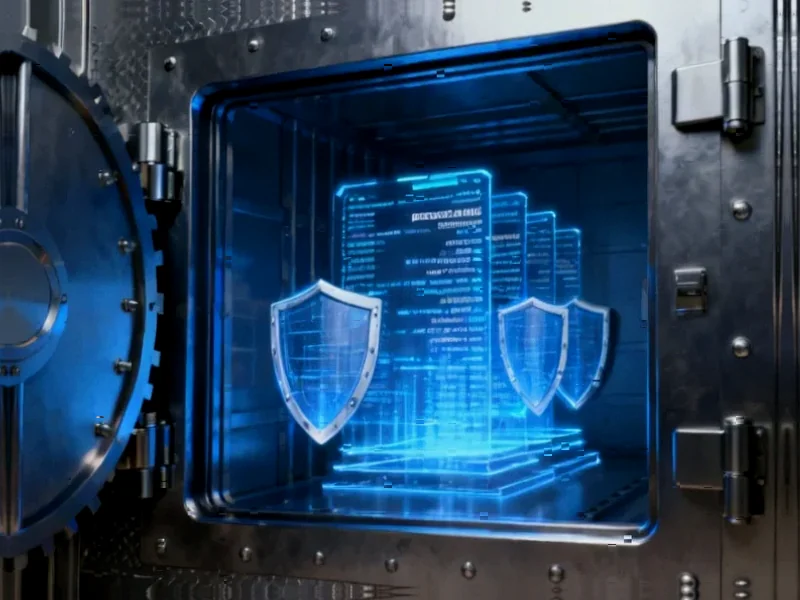According to PYMNTS.com, Zerohash Europe has received MiCAR authorization to provide B2B2C embedded crypto and stablecoin services, positioning the company as a key infrastructure provider under Europe’s new regulatory framework. The authorization comes amid reports that Mastercard is in late-stage talks to acquire Zerohash for $1.5 billion to $2 billion, though both companies declined to comment on the potential deal. In September, Zerohash raised $104 million in Series D-2 funding to accelerate product expansion and hiring, responding to increased demand for enterprise-grade on-chain infrastructure. Company leadership emphasized that regulatory clarity is driving major financial institutions to explore stablecoins, tokenization, and embedded crypto services. This regulatory milestone represents a significant step in Zerohash’s global expansion strategy, building on its existing regulatory footprint across the United States, Bermuda, Canada, Australia, and Latin America.
The Technical Infrastructure Behind Embedded Crypto Services
Zerohash’s authorization under MiCAR represents a sophisticated technical achievement in building compliant blockchain infrastructure. The company’s platform likely employs a multi-layered architecture that separates settlement layers from application interfaces, enabling financial institutions to integrate crypto services without rebuilding their core systems. This B2B2C model requires robust API gateways that can handle high-volume transaction processing while maintaining regulatory compliance across multiple jurisdictions. The technical challenge involves creating abstraction layers that allow traditional financial systems to interact with blockchain networks while maintaining audit trails, transaction monitoring, and real-time compliance checks. This infrastructure must support various consensus mechanisms and blockchain protocols while ensuring enterprise-grade security and performance standards.
MiCAR’s Technical Requirements and Compliance Challenges
Europe’s Markets in Crypto-Assets Regulation imposes specific technical requirements that infrastructure providers must meet. MiCAR mandates rigorous capital requirements, governance standards, and operational resilience that go beyond traditional financial regulations. The regulation requires real-time transaction monitoring, robust cybersecurity measures, and detailed reporting mechanisms that can track asset movements across decentralized networks. For stablecoin services specifically, MiCAR imposes strict reserve requirements and redemption mechanisms that must be technically enforced through smart contracts and automated compliance systems. The authorization indicates Zerohash has successfully implemented these technical controls, including mechanisms for handling MiCAR’s consumer protection requirements and anti-money laundering provisions across their embedded service architecture.
The Institutional Adoption Pathway for Blockchain Infrastructure
The reported Mastercard acquisition talks highlight a broader trend of traditional financial institutions recognizing the strategic value of crypto infrastructure. Large payment processors and banks are increasingly viewing blockchain technology not as a competitor but as complementary infrastructure that can enhance existing payment rails and settlement systems. The $1.5-2 billion valuation suggests institutional investors see significant potential in companies that can bridge traditional finance with blockchain networks. This aligns with growing institutional interest in tokenization of real-world assets and the development of regulated stablecoin ecosystems. The timing is particularly significant given recent regulatory developments in both Europe and the United States that provide clearer frameworks for institutional participation.
Competitive Landscape and Market Positioning
Zerohash’s multi-jurisdictional regulatory strategy positions it uniquely in the competitive crypto infrastructure space. By securing authorizations across major markets, the company can offer global financial institutions a consistent compliance framework rather than requiring separate implementations for different regions. This approach addresses a critical pain point for multinational corporations seeking to implement blockchain solutions at scale. The $104 million Series D-2 round in September provided crucial capital to expand technical teams and infrastructure ahead of anticipated demand following regulatory clarity. The company’s focus on embedded services rather than consumer-facing applications creates strategic differentiation from crypto-native companies while aligning with the needs of established financial institutions seeking to add digital asset capabilities to existing offerings.
Technical Evolution and Industry Impact
The convergence of traditional finance and blockchain infrastructure represents a fundamental shift in how financial services will be built and delivered. Zerohash’s authorization under MiCAR signals that regulatory-compliant blockchain infrastructure is maturing to the point where mainstream financial institutions can confidently integrate these technologies. The next phase will likely involve more sophisticated interoperability solutions that can bridge multiple blockchain networks with traditional financial systems seamlessly. As more institutions follow this path, we can expect increased standardization of APIs, security protocols, and compliance frameworks across the industry. The success of companies like Zerohash in navigating complex regulatory environments while maintaining technical innovation will determine the pace at which blockchain technology becomes integrated into the global financial system.




